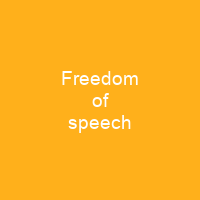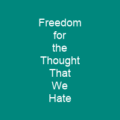What is Freedom of Speech and Why Does It Matter?
Imagine a world where you can’t express your thoughts without fear of retribution or legal consequences—wouldn’t that be a chilling place to live? That’s exactly what the absence of freedom of speech would create. This fundamental human right supports the articulation of opinions and ideas, ensuring individuals can speak their minds without fear.
Recognized as a Human Right
The United Nations recognizes this principle in Article 19 of the Universal Declaration of Human Rights, stating that everyone has the right to hold opinions without interference and to seek, receive, and impart information and ideas. However, this right is not absolute; it can be limited for various reasons.
Limitations on Freedom of Speech
While freedom of speech is a cornerstone of democratic societies, it’s not without its boundaries. Laws such as libel, slander, obscenity, sedition, incitement, fighting words, hate speech, classified information, copyright violation, trade secrets, food labeling, non-disclosure agreements, the right to privacy, dignity, and blasphemy can restrict this freedom.
The Harm Principle
One of the justifications for these limitations is the harm principle. This concept suggests that power can be exercised over individuals to prevent harm to others. For instance, speech that incites violence or hate may be restricted to protect public safety and order.
A Historical Perspective on Freedom of Speech
The idea of freedom of speech has a long history, predating modern international human rights instruments. Ancient Athens is credited with the democratic principle of free speech, which was later vindicated by Erasmus and Milton. The English Bill of Rights in 1689 legally established the constitutional right of freedom of speech in Parliament.
The Evolution of Digital Communication
The advent of digital communication has made freedom of speech more controversial, as new means of restriction have arisen. Governments and social media platforms now play a significant role in regulating online discourse, often through filtering projects and automatic elimination of hate speech.
Freedom of Speech in the Digital Age
The internet has been recognized as a medium for freedom of speech, with international standards applying to it. However, challenges remain, such as internet censorship by governments like China and Saudi Arabia. The Global Internet Freedom Consortium works to remove blocks from ‘closed societies,’ highlighting the ongoing struggle for digital freedom.
Legal and Cultural Perspectives
Interpretations of the harm and offense principles are culturally and politically relative, leading to varying restrictions on speech in different countries. For example, Russia restricts LGBT propaganda, while France protects blasphemy and disparagement of Muhammad under free speech law.
The Future of Freedom of Speech
As technology continues to evolve, so too will the challenges and opportunities for freedom of speech. The Internet has transformed how we communicate, making it both a powerful tool for expression and a platform for censorship. Legal scholars argue that traditional issues of free speech assume scarcity of information, but with the internet, information is plentiful while attention is scarce.
Conclusion
The value of freedom of speech lies in social interactions, forming relationships, and developing knowledge. Limitations to this right exist due to legal systems setting limits for conflicts with other rights and protections. The defense of free speech on the grounds of democracy argues that it provides a balance between stability and change, acting as a ‘safety valve’ to prevent revolution.

You want to know more about Freedom of speech?
This page is based on the article Freedom of speech published in Wikipedia (retrieved on December 28, 2024) and was automatically summarized using artificial intelligence.





